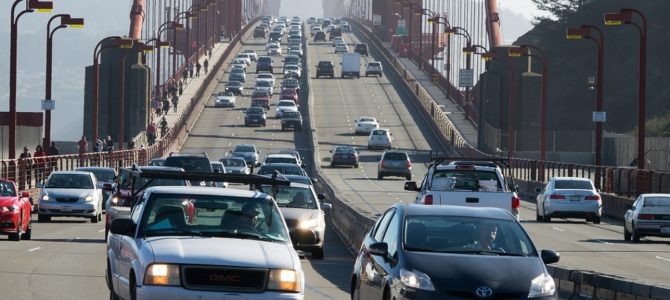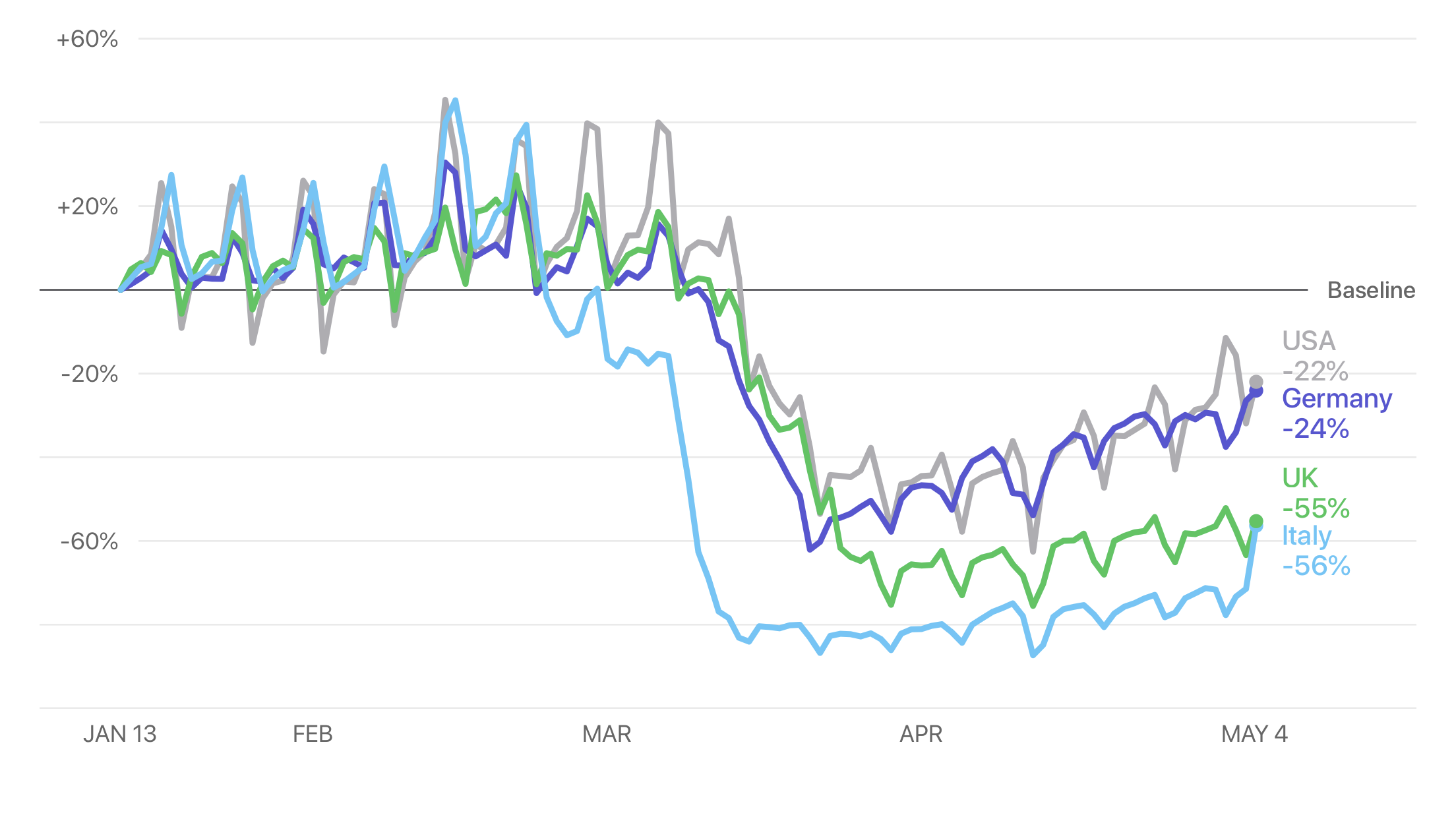
Over the past two weeks, a slew of polling has come out showing that Americans overwhelmingly support the coronavirus lockdown measures throughout much of the country. A recent poll in Massachusetts had 85 percent supporting the extension of restrictions through May 18. Nationally, according to a Forbes poll in late April, 87 percent of Americans favor continuing the lockdown. But cell phone tracking data is telling a different story.
Apple looked at changes in routing requests on its phones and found that beginning in mid-March their users’ mobility began dropping, hitting a nadir of -60 percent of the baseline in April. By May 4, that number had jumped up to -20 percent of the baseline. That’s a 40 percent increase in travel.

A University of Maryland cell tracking study found that between April 24 and May 1, there was a 17 percent drop in people staying home and an 18 percent jump in people taking “non-essential” trips.
So what explains this disconnect between what Americans say they want and what they are actually doing? Why are Americans supportive of government efforts to keep them sealed off at home when they are not obeying the orders? There are several specific reasons this might be the case, but what it really boils down to is human nature.
First of all, the media has presented the argument between staying in lockdown and reopening the country as a moral choice. Those who wish to end the restrictions are presented as cynical and uncaring, and those who support them as willing to make sacrifices to save lives. Given this, it’s not strange that in polling the vast majority claim what they view to be the moral position.
In a 2015 poll, Gallup found that only 6 percent of Americans approve of adultery. Yet the number of Americans who sexually stray in their relationships is well north of that. When asked about the rightness or wrongness of cheating, the answer is overwhelmingly that it is wrong, but when faced with the opportunity, often something different happens.
Speaking of adultery, the rather ironic news broke this week that Neil Fergusson, the scoldiest of the U.K. government scolds insisting that Brits not leave their homes, had his married girlfriend over to his place on two occasions during the strict lockdown. He has since resigned. It is possible Ferguson believed everything he said about the lockdown orders, but as humans are wont to err, he just wasn’t quite able to live up to the standard he set.
Through the Ferguson lens, the gap between polling and cell phone data becomes less contradictory than it might seem at first glance. Essentially, while Americans think that people as a whole should be restricted by stay-at-home orders, as individuals they seem to think they can venture out into the world responsibly.
This is not simply a case of selfishness, but one in which people know what measures they will take to compensate for risk, but do not know what measures others may take. So it makes sense that Americans would apply a different set of rules to themselves than they would to society at large.
What has been clear for weeks and argued several times here at The Federalist is that the American people, not the government, will decide when the lockdown is over. As photos and videos across the country have shown over the past week or so, the government is not capable of enforcing a stay-at-home order for 350 million Americans. When they decide to go out, they are going to go out.
Well, the data show that many, and a fast-growing number, have to decided they are going out. This fact more than anything else explains why more than half of the states in the country have eased restrictions even as much as the media derides the decision as tantamount to murder. The governors of these states are reacting to the will of the people as expressed in their actions, not in their statements to a pollster.
The dam of stay-at-home orders is springing leaks all over the country, and governments have nowhere near enough fingers to plug up all the holes. Americans have decided that we are moving into a new phase of the coronavirus crisis, an awakening, if you will: front doors and car doors and doors to businesses are opening, and the American people are going through them.









